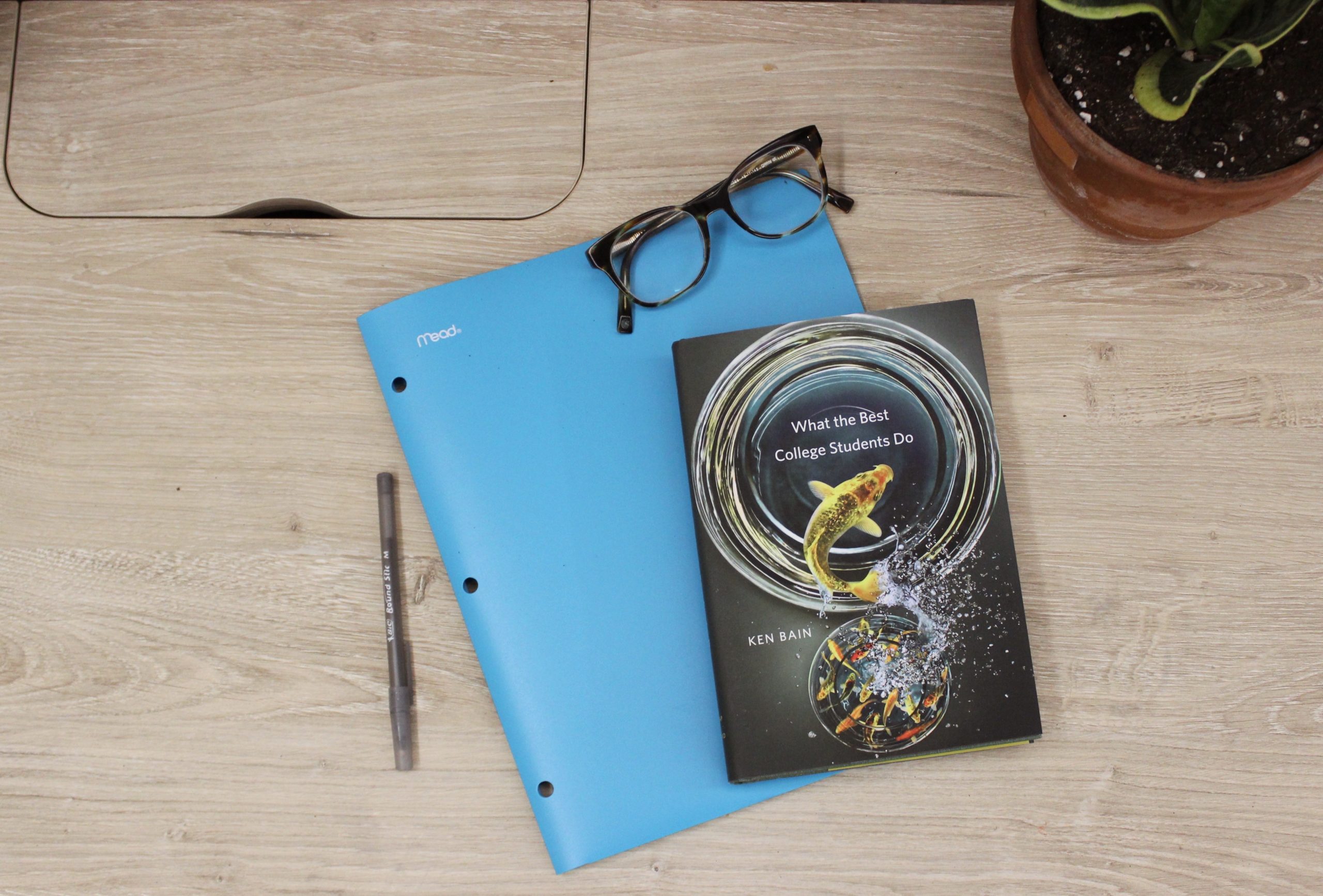“What the Best College Students Do” by Bain
Why read "What the Best College Students Do?" Besides being the book we most frequently recommend, it's also a research-based, story-driven description of how to approach learning in college.

Why read What the Best College Students Do? Besides being the book we most frequently recommend, it’s also a research-based, story-driven description of how to approach learning in college.
Have you considered your approach to learning in college? Everyone has an approach, whether it’s one you’ve considered or not. It’s the way you think about learning and your posture toward learning as you engage in classes and homework. It’s what motivates you to keep going after a low grade or to go beyond what’s required to have thoughtful conversations with your professors about the topics of a class.
One of the books we recommend most frequently covers each of these aspects of being a student, and more. The book is Ken Bain’s What the Best College Students Do, a compilation of original interviews and existing research about what makes students successful in college, supplemented by stories about creatively engaged post-college individuals who add value through their work and to their communities–and what they did in college to help them get there in life.
In the introduction to What the Best College Students Do, Bain writes:
“We wanted to know how people did after they left school, and we selected people to follow only if they obviously learned deeply and subsequently became those highly productive individuals who continued to grow and create. We wanted to find interesting people who were aware of the world, difficult to fool, curious, compassionate, critical thinkers, creative, and happy. We sought men and women who enjoyed a challenge, whether in learning a new language or solving a problem, people who recognized when old ways would not work, who were comfortable with the strange and challenging, who had fun finding new solutions, and who were at ease with themselves.
We wanted to know how they got to be that way. How did they find their passions? How did they make the most of their education? How can we learn from them? In some cases, these highly confident, creative problem solvers learned despite college; in others, they flourished through their wonderful experiences there. Some of them have always been successful. Others spent most of their high school years barely scraping by before breaking out of the pack in college, or even later…” (p. 6).
Furthermore, Bain summarizes his aspirations for readers and offers a vision similar to ours for the kind of learning students will experience at King’s:
“Imagine for a moment a different world, a place in which students find deep meaning in everything they learn. In that universe, learning changes who people are and how they view the world. It makes them into better problem solvers, more creative and compassionate individuals, more responsible and self-confident people. Students are able to think about the implications and applications of what they learn. Not afraid to make mistakes and full of questions and ideas, the citizens of this place easily and happily explore new areas with ease while possessing a deep humility about how complex their world can be…”(p. 9).
Offering much more than a checklist of how to be a good student in college, Bain’s book prompts one to consider, one chapter at a time, several key facets of university learning. In doing so, Bain honors students’ sense of agency in shaping a life in college, and he skillfully demonstrates that our approaches to learning in college have the potential to shape a productive, curious, and creative life far beyond.
If you’d like to read more in Bain’s text, find it our Rozella Battles Library collection, or purchase it for reference throughout your time at King’s.




